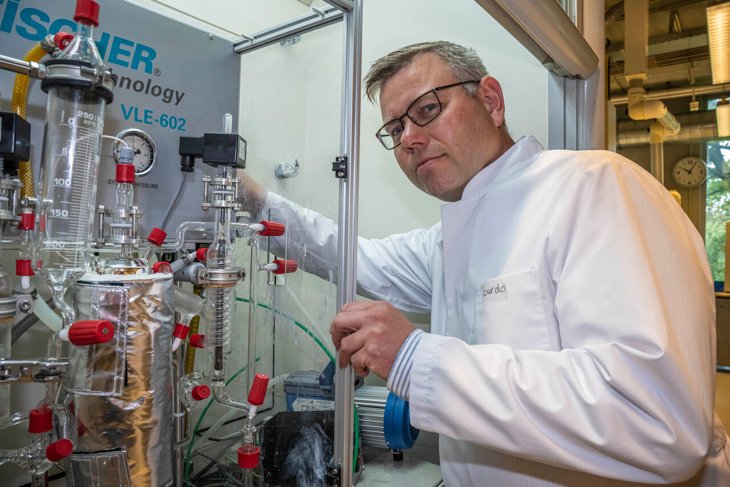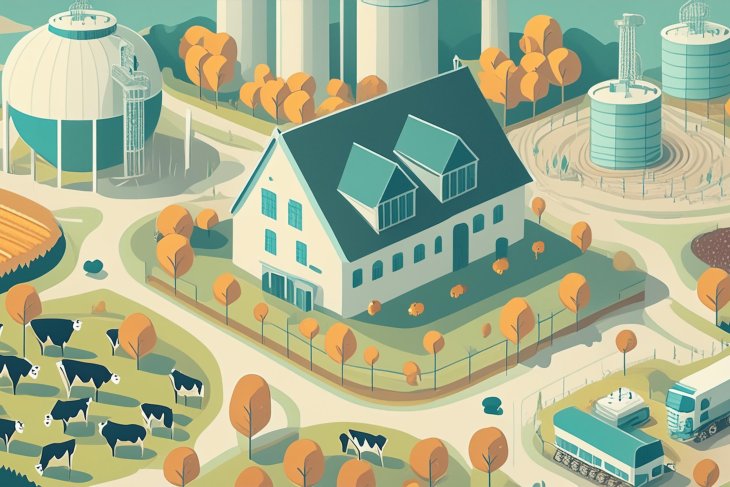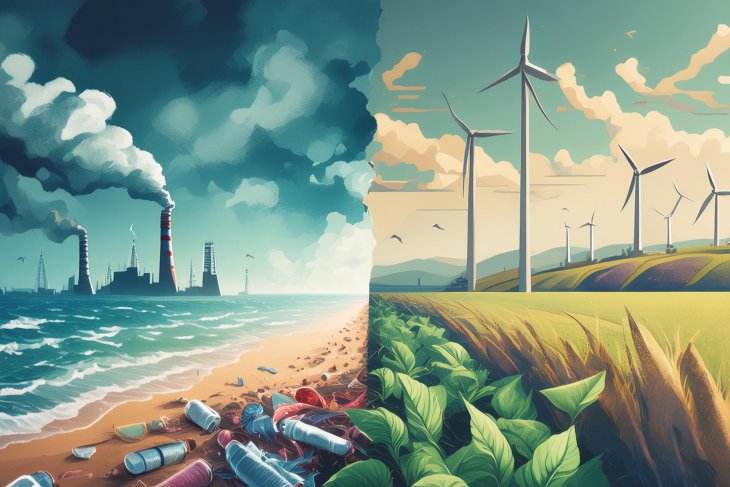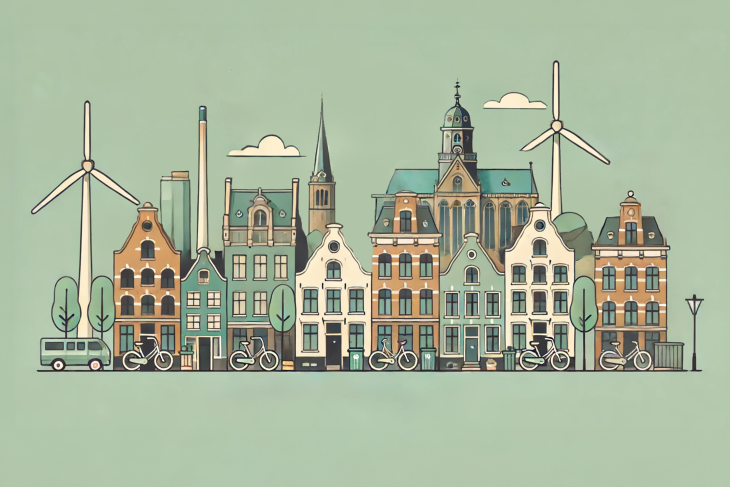Whether it's plastics, metals, or fibers, our waste is a great source of raw materials and biofuels, if you can extract them. It remains a challenge to extract useful components from, for example, residual waste, as well as residues from agriculture, the paper industry, and remnants from water treatment - mostly wet waste streams. While there are reusable parts within them, the majority of these waste streams end up in the incinerator.
Large companies and startups
Professor of Separation Technology Prof. Boelo Schuur and Professor of Process Technology Prof. Sascha Kersten from the University of Twente are attempting to change this. They coordinate the ReBBloCS project from the Institute for Sustainable Process Technology (ISPT), where Schuur works one day a week as program director and Kersten as scientific director. ReBBloCS is a collaboration of scientists and companies associated with ISPT. This includes major companies such as Tejin, SABIC, and DOW Chemical, which require raw materials from recycled sources, as well as companies, often smaller startups, such as BioBTX and Recell, which have the technology to realize the chemical steps but not yet on a large scale. Twente waste processor Twence is also on board. Over the next four years, these parties within ReBBloCS will combine their knowledge to find ways to convert waste streams that are currently waste into raw materials for the chemical industry, biofuels, and biobased plastics.
Breaking down and building up like Lego
Schuur likes to compare our waste to Lego. "You can break down a Lego model into blocks to make something new from it," he says. He wants to do the same with our waste, chemically speaking. Schuur explains, "Chemical conversions have been done in industry for years, but those processes generally work with relatively clean but stable feed streams. This is fundamentally different when you use waste as a feedstock. Its composition varies from day to day, from garbage bag to garbage bag. Even a relatively homogeneous waste stream like sorted plastic waste poses problems. It often contains substances like PVC containing chlorine and other plastics with bromine-based flame retardants. These substances can form hydrochloric acid or hydrogen bromide that corrodes machinery in a factory." With additional processing steps, you can remove or neutralize such contaminants. The researchers aim to make recycling processes more robust against the varying composition and quality of the feed stream. This can be done using, for example, microorganisms that convert substances through a process called hydrolysis, as well as chemical conversions at high temperatures through gasification processes or pyrolysis.
High-value products
Within ReBBloCS, a PhD student who started earlier this year and a postdoc yet to be appointed at the University of Twente are researching the separation processes before and after gasification and pyrolysis. They aim to isolate and produce various chemicals from a waste stream, including raw materials for high-value products such as plastics, adhesives, paints, and strong aramid fibers. In addition to developing the technologies, the scientists aim to help companies choose the most suitable recycling processes for them. "Companies that want to green their operations and use waste streams don't always know which chemical processes are most suitable," says Schuur. "That depends on the composition of the waste stream. Together with other partners, we are developing a tool to help them choose the best recycling technology."
Garage roofs at Twence
One of the partners in the project is the Twente waste processor Twence. The company struggles to handle waste streams, including biomass-rich and bituminous roofs from, for example, garages and sheds. "Biomass is a waste stream with relatively little carbon, while bituminous roofs contain a lot of it. That requires a different approach," explains Schuur. Within ReBBloCS, we've connected the carbon-poor streams like Twence's complex biomass to a gasification company that produces an outflow containing a lot of hydrogen. This opens up more possibilities. Garage roofs are currently incinerated. Soon, we'll use a pyrolysis process to extract new raw materials containing a lot of carbon. A big step forward."




